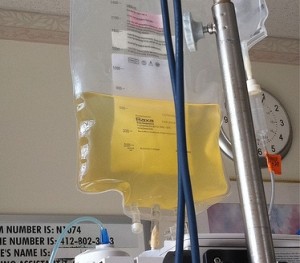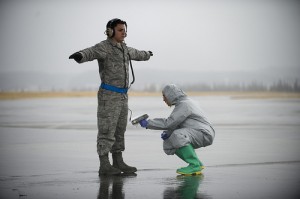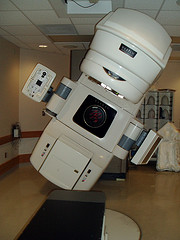A new report indicated that cancer rates in the US are continually dropping by at almost one percent per year. Moreover, the same study found out that cancer-related deaths are also going down by 1.6 per cent annually. This trend was observed between 2003 and 2007.
The researchers also noted that this is the first time they observed a decrease in the death rate of women with lung cancer. Lynn Ries, co-author of the report, said that the decline we are seeing right now is caused by women quitting smoking.
The report was conducted by several researchers from different groups; one of which is the American Cancer Society. The report was published online on the Journal of the National Cancer Institute, Thursday.
Unfortunately, even though there is a notable decrease in cancer rates among adults, the same is not true among children. In fact, there are increasing numbers of diagnosed cancer patients in children. Ries, however, pointed out that death rates among children decreased. She also said that the reason for the rise in the occurrence of cancer among children is still unclear.
If there are changes in variables among women and children with cancer, the numbers remained the same among men. The report said that there could have been a decrease in cancer diagnosis among men, only that the statistics of prostate cancer has raised.
Ries said that this report was particularly difficult to organize because cancer is not just one disease. There are different kinds of cancer and some of them increase in number, while others decrease. She also said that men and women follow different kinds of trends in terms of cancer diagnosis.

 Diabetes is already tagged as one of the silent killers because it is linked to various complications such as kidney failure. Now, evidences that diabetes can also be linked to cancer are emerging.
Diabetes is already tagged as one of the silent killers because it is linked to various complications such as kidney failure. Now, evidences that diabetes can also be linked to cancer are emerging. Medicare is worried about thousands of people making a deal with their physicians. The deal is patients will pay their doctors a fixed yearly fee, regardless of whether or not those patients will need the services of their physicians. The physicians are also under contract to see their patients the minute they need their doctors, and give them undivided attention.
Medicare is worried about thousands of people making a deal with their physicians. The deal is patients will pay their doctors a fixed yearly fee, regardless of whether or not those patients will need the services of their physicians. The physicians are also under contract to see their patients the minute they need their doctors, and give them undivided attention. The Massachusetts state department of education announced Friday that expired foods were found in public school cafeterias. An average of a dozen schools around the state reported to have received shipments of foods six weeks past its expiration date.
The Massachusetts state department of education announced Friday that expired foods were found in public school cafeterias. An average of a dozen schools around the state reported to have received shipments of foods six weeks past its expiration date. The price of the drug that prevents premature birth was slashed by more than 50 percent after the FDA decided to keep its cheap version available in the market.
The price of the drug that prevents premature birth was slashed by more than 50 percent after the FDA decided to keep its cheap version available in the market. A recent study said on Wednesday, that patients who have had liver transplant and quit smoking, will decrease their risk of developing cancer. Researchers from Spain reviewed data of liver transplant patients between 1990 and 2009, and found out that those who quit smoking had lesser tendencies of getting smoking-related cancer, than those who did not.
A recent study said on Wednesday, that patients who have had liver transplant and quit smoking, will decrease their risk of developing cancer. Researchers from Spain reviewed data of liver transplant patients between 1990 and 2009, and found out that those who quit smoking had lesser tendencies of getting smoking-related cancer, than those who did not. Nine patients from different hospitals have died in Alabama after they have received an intravenous nutrition therapy. Health officials say the feeding bags that were given to the patients were contaminated with a certain bacteria.
Nine patients from different hospitals have died in Alabama after they have received an intravenous nutrition therapy. Health officials say the feeding bags that were given to the patients were contaminated with a certain bacteria. The nuclear problems in Japan emphasize one critical gap in the medical field- experts only have had a few proven ways to help treat people who have already been exposed to massive amounts of radiation.
The nuclear problems in Japan emphasize one critical gap in the medical field- experts only have had a few proven ways to help treat people who have already been exposed to massive amounts of radiation. A study conducted by the US National Cancer Institute confirms that the likelihood of developing a second cancer after radiation therapy is very low. The long-term study of about 600,000 cancer survivors showed that only 8 per cent of that population developed secondary cancer due to radiation therapy.
A study conducted by the US National Cancer Institute confirms that the likelihood of developing a second cancer after radiation therapy is very low. The long-term study of about 600,000 cancer survivors showed that only 8 per cent of that population developed secondary cancer due to radiation therapy. A group of influential doctors said that “Facebook depression” may now be added to the list of potential risks associated with social media. They said that obsession to this online site will most likely exacerbate teenage depression. However, some researchers argue that it cannot be considered a separate diagnosis, but rather an extension of the despair teens feel.
A group of influential doctors said that “Facebook depression” may now be added to the list of potential risks associated with social media. They said that obsession to this online site will most likely exacerbate teenage depression. However, some researchers argue that it cannot be considered a separate diagnosis, but rather an extension of the despair teens feel.